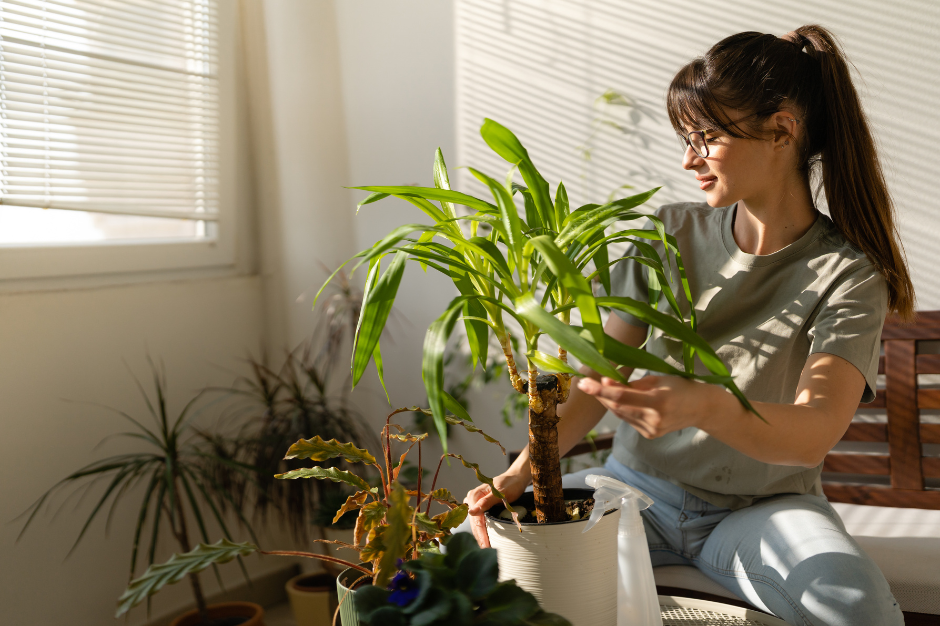Self-Care and Stress Reduction
- Prioritize Self-Care
Find moments during the holiday bustle for personal wellness. Take a walk, practice deep breathing, or indulge in a hobby to recharge.
- Stick to a Routine
Our normal routine often gets disrupted during the holidays. But, when possible, it’s helpful to maintain it, as it provides a sense of normalcy and control.
- Learn to Relax
Incorporate relaxation techniques like progressive muscle relaxation or box breathing to alleviate stress.
- Set Boundaries
Clearly communicate personal boundaries and expectations. It’s okay to say no when necessary.
- Create Safe Spaces
Designate a calm area to retreat to if family tension becomes overwhelming.
- Be Mindful
Mindfulness helps us respond to stress thoughtfully and rationally, rather than react in an emotionally explosive way.
- Practice Gratitude
Focusing on the positive aspects of spending the holidays with family can put things into perspective and stop us from fixating on problems.
Communication and Connection
- Communicate Effectively
So much conflict happens because of miscommunication. Learning to express thoughts and feelings in a helpful way can encourage open discussion and understanding.
- Practice Empathy
Empathy helps us understand the feelings and motivations of others. This makes it easier to maintain strong relationships, even in difficult situations.
- Be Assertive
Practice assertive communication. Assertiveness promotes confident, direct expression of needs and feelings, without aggression.
- Reach Out for Support
Chances are, other people are dealing with similar family stress this holiday. Connecting with friends who understand our experiences can lighten the emotional load.
- Talk to a Professional
Qualified therapists, like those available through UCA’s 24-Hour Counseling Hotline, can provide support, insight, and valuable tools for navigating family relationships.
Family dynamics and relationships
- Empower Others
Encourage family members to share their thoughts and feelings. Creating an open, supportive environment benefits everyone.
- Have Regular Family Check-ins
Schedule regular family check-ins to discuss how everyone is feeling and reflect on their experiences. Consistent communication builds trust and safety.
- Collaborate on Solutions
Work together as a family to find solutions to challenges. Involving everyone promotes a sense of teamwork and belonging.
- Share Responsibilities
Share responsibility for planning and preparing for holiday get-togethers and traditions. Shared efforts create a sense of unity and lessen stress.
- Establish Traditions
Create positive family traditions. Shared activities can strengthen bonds and create good memories.
- Be Flexible
Be open to modifying traditions to fit evolving family dynamics.
- Acknowledge Growth in Others
Sometimes, we hold onto old negative ideas about people, which can stop us from seeing their progress. It can be helpful to recognize positive changes in family members; we can celebrate their growth with encouragement or make note of it silently.
*This doesn’t apply in situations where a person is a threat to our mental or physical wellbeing.
- Be Gracious
Extend grace to family members (within reason). Recognize that everyone is dealing with personal struggles and is deserving of compassion.
Personal Growth and Resilience
- Identify Triggers
Recognizing situations that escalate tension allows us to proactively avoid them or have coping skills ready to handle them.
- Have Self-Compassion
Family often has the unique ability to make us feel vulnerable and unsure of ourselves. In these moments, it’s useful to remember that our feelings are real, normal, and okay to have.
- Think about the Big Picture
Whether it’s getting through a family dinner without a fight or mending an important relationship, focusing on long-term goals can help us handle short-term challenges more mindfully.
- Set Realistic Expectations
We might want everything to go according to plan. In an ideal world, everyone will be on their best behavior. No one will bicker, everyone will be happy, and the holidays will be full of movie-style magic. But this isn’t realistic. Maybe someone will give us unsolicited advice, we’ll get into an argument, or something will go wrong. When we stop striving for perfection, we can appreciate the present for what it is.
Key Takeaways
- Self-Care is a Building Block
The emphasis on self-care goes beyond individual wellbeing; it’s a core element of a good family holiday experience. When each member prioritizes open communication and self-care, the family unit can become more resilient.
- Collaboration Empowers Us
Family well-being during the holidays is not an individual goal but a collective effort. By encouraging open dialogue, sharing responsibilities, and collaborating on solutions, families can empower each member to contribute positively to the overall dynamic. The strength of a family relies on our ability to work together.
- External Support is Key
Friends and professionals can provide solidarity, empathy, and useful tools that make it easier to handle family challenges healthily.

